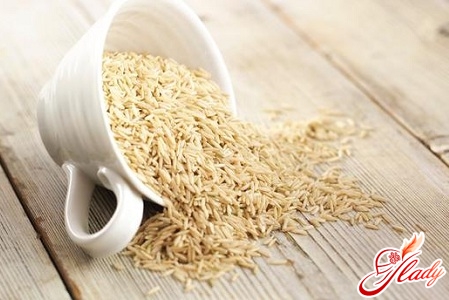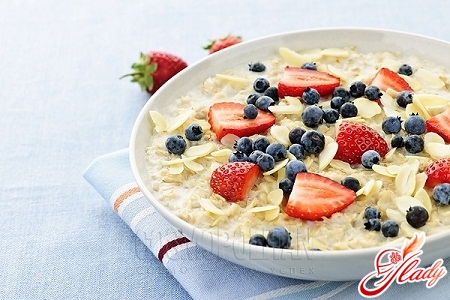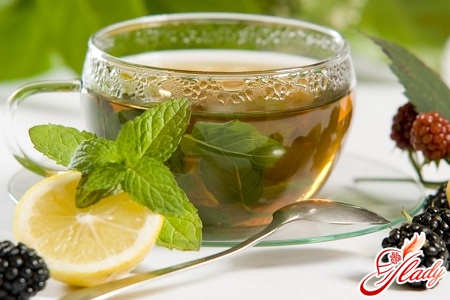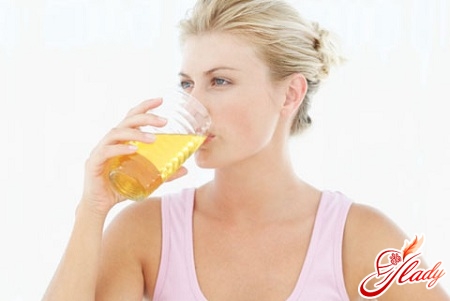
Pyelonephritis and cystitis relate to urologicaldiseases, widespread in our time. The first disease affects the kidneys, the second causes inflammation of the walls of the bladder. Peculiarities of the structure of the genital organs lead to the fact that according to statistics, every fifth woman experiences cystitis at least once in her life.
Why do we need special food?
Treatment should be conducted underthe control of the doctor, however it is not enough to be limited exclusively to medical prescription. Be sure to follow and recommendations for nutrition, as some products are capable of irritating the mucosa of the urinary tract. Their exclusion will facilitate a speedy recovery. Diets with pyelonephritis or cystitis should be treated by a urologist. Its main goal is to increase the outflow of urine. It is achieved by reducing salt intake, introducing alkaline products into the diet, reducing the intake of proteins and fats. It is recommended to eat at least 4 times a day, but in small portions. In breaks, you should saturate the body with plenty of water. With pyelonephritis and cystitis, the following will be useful:
- porridge, soups,
- boiled meat, fish,
- vegetables,
- Fruits (except for strongly exotic, best natural for the locality),
- dairy,
- boiled beets,
- occasionally eggs and butter,
- very rarely honey, caramel, marshmallow, jam, jujube, buns, if you can not suppress the sweet desire.
It is good to include in a diet cranberries or juice from it. Berry increases the acidity of urine and its protective bactericidal properties. Frequent consumption of cranberries removes the symptoms of acute inflammation, reduces temperature, normalizes urination, stops pain. A diet with pyelonephritis or cystitis is usually supplemented with tea made from rose hips, black currant, ashberry. They saturate the body with vitamins C and P, increase immunity. Drink a drink 2-3 times a day before meals. However, it is also not recommended to overdo the liquid with the patient, it is better to keep the amount of fluid entering the body throughout the day, within the range of 2-2.5 liters. In the first days of treatment, more to lean on vegetables and fruits. Useful will be and fruit, cranberry, plum, grape and apple juices. Weak tea or non-natural coffee is allowed. 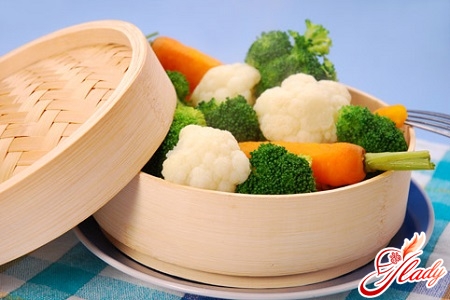
What should I reject?
In the treatment of pyelonephritis or cystitis from the diet should be deleted:
- parsley, onion, spicy spices (mustard, vinegar, pepper, horseradish),
- Rye bread,
- garlic,
- beans,
- salted, marinated, fried, smoked products,
- canned food,
- cauliflower,
- cakes, chocolate, cakes,
- celery,
- alcohol,
- radish,
- spinach,
- rich mushroom and meat broths,
- carbonated drinks, coffee and cocoa.
Citrus fruits, like mandarins, oranges,grapefruit, can cause allergies, so it is better to give them up. Caffeine, contained in chocolate and coffee, causes painful spasms of the muscles of the bladder. Excess sweets have a negative effect on urine reactions and can contribute to inflammation of the bladder. A speedy recovery with pyelonephritis or cystitis will provide a diet of high-calorie and well-assimilated foods rich in vitamins that are easily digested. During the exacerbation of symptoms, only vegetarian food is allowed, as they fade into the diet, porridge and dairy products are introduced. If the treatment is successful, boiled lean meat is allowed. If you count calories, make sure that their daily amount does not exceed 3200. Vegetables and fruits are better to eat raw, from cooking cooked for steaming, in the oven or digestion.
Approximate diet
With pyelonephritis or cystitis, you can use the following diet options. Simple menu:
- Breakfast: salt-free bread with butter, egg white omelet from one egg, boiled vegetables with white sauce.
- Lunch: salt-free bread, vinaigrette, vegetarian soup, low-fat boiled chicken with mushroom sauce and baked vegetables, kefir.
- Snack: mashed potatoes, lean boiled fish, sour cream (fat content 5-10%).
- Dinner: low-fat cottage cheese, fruit sauce, briar infusion.
Easy menu:
- Breakfast: salad of fresh fruit or vegetables, mashed potatoes or porridge, butter, bread, tea.
- The second breakfast: a glass of kefir or juice.
- Lunch: vegetable soup, boiled fish or meat, cereal or mashed potatoes, jelly or compote.
- Dinner: curd casserole, grated carrots with sour cream and prunes or baked apple, tea.
Delicious menu:
- Breakfast: vegetable puree or milk porridge, omelet or soft-boiled eggs, unsalted cheese or cottage cheese.
- Lunch: vegetable soup or cereal soups, steamed or boiled fish, stewed vegetables, pasta or cereal, mousse, kissel, compote or juice.
- Afternoon snack: kefir, baked potatoes with butter, fruit.
- Dinner: casserole with cottage cheese, pasta with cheese or vinaigrette.
Remember that the right menu is made upThe professional urologist on the basis of analyzes of the patient. Diet in pyelonephritis or cystitis largely depends on the stage of the disease, the patient's health, age and other factors, so when compiling a diet, you should always take into account the opinion of a specialist. 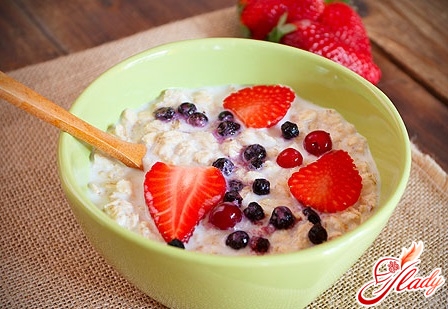
Recommendations on the diet
If pyelonephritis or cystitis is effective, thena diet that uses the following recommendations. Firstly, if the season allows, you should eat more melons, zucchini and watermelons. They have a strong diuretic effect. If pyelonephritis is accompanied by anemic syndrome, you should increase the intake of products rich in iron and cobalt (garnets, strawberries, apples, strawberries). Do not focus on kefir and cottage cheese, add to your diet acidophilus, fermented baked milk, curdled milk, sour cream, natural yogurt, soft cheese. From meat preference is best given to lean beef, chicken and rabbit. The listed varieties contain high-grade proteins, absolutely all essential amino acids in the ratio necessary for assimilation, salts of potassium, phosphorus, magnesium and other elements. Remember that meat is best cooked in small pieces on low heat to eliminate extractives. Fish with cystitis and pyelonephritis are suitable for sea and river, the main thing to choose skinny or medium fat. Fish contain easily digestible proteins and mineral salts. Cereals, wheat bread, pasta, confectionery can be included in the diet, but they must be of high quality, from hard varieties and in minimal quantity. A good effect with cystitis and pyelonephritis is given by herbal preparations, usually the result is noticeable after 2 weeks. We recommend phyto-tea from:
- leaves of blueberries,
- white willow bark,
- trifling,
- nettle,
- licorice root,
- birch leaves,
- kidneys of St. John's wort.
If uraemic syndrome is present,to focus in the diet on sorbents and scavenger products: fiber in vegetables and fruits, limit protein intake to 25 grams per day. If the patient once had an allergy, the allergen should be excluded from the diet, as it can enhance the inflammatory process in the kidneys. If pyelonephritis is accompanied by glomerulonephritis, then the fluid intake is limited to 600 ml per day during the exacerbation period. After the dose gradually increases. There is also a restriction on salt intake, up to 2-3 grams per day, and protein. Follow the recommendations of your doctor, consume healthy foods and stay healthy!




